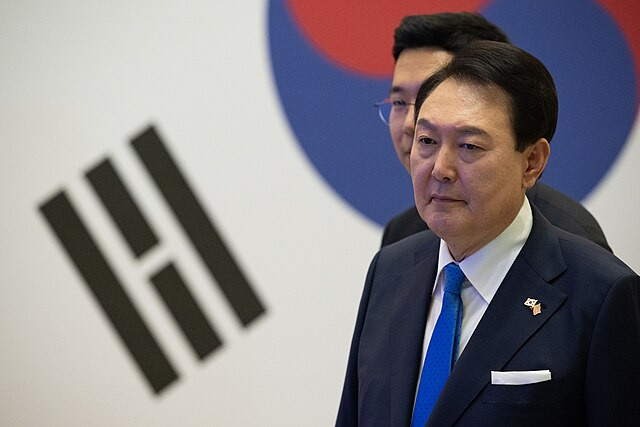South Korea's impeached president, Yoon Suk Yeol, appeared before a Seoul court on Saturday to argue for his release from custody as the judiciary deliberates on a formal arrest warrant. The request, filed by the Corruption Investigation Office for High-Ranking Officials, stems from allegations that Yoon orchestrated a rebellion through his controversial imposition of martial law in December. The decree triggered South Korea's gravest political crisis since the country's democratization in the 1980s.
Yoon, detained last Wednesday in a dramatic operation at his residence, spent 40 minutes addressing the judge during a five-hour closed-door hearing. His legal team, alongside prosecutors, presented opposing arguments on whether he should remain in custody. The specifics of Yoon's remarks were not disclosed by his lawyers.
The court is expected to issue its decision by late Saturday or early Sunday. If the arrest warrant is granted, Yoon's detention could extend by 20 days, providing investigators time to prepare a case for indictment. Should the court deny the warrant, Yoon will be released and allowed to return home.
Yoon's legal troubles trace back to December 3, when he declared martial law, deploying troops to block access to the National Assembly and election offices in an attempt to break legislative gridlock. His actions were swiftly overturned after lawmakers managed to reconvene and repeal the decree. Days later, the opposition-dominated National Assembly voted to impeach him, citing abuse of power and rebellion.
Nine of Yoon's top officials, including his defense minister and police chief, have already been arrested and indicted for their roles in enforcing martial law. The charges against Yoon, if proven, carry severe penalties under South Korean law, including life imprisonment or the death penalty for rebellion.
Arriving at the Seoul Western District Court on Saturday, Yoon was transported in a police-escorted motorcade to avoid a confrontation with the thousands of supporters gathered nearby. Protesters chanted slogans and waved banners calling for his release, with some attempting to approach his vehicle.
Initially uncertain about attending the hearing, Yoon ultimately heeded his lawyers' advice to appear in person. His legal team has argued that the martial law declaration was a constitutional exercise of presidential authority and that the rebellion charges are unfounded. Yoon's attorneys also contend that their client poses no flight risk and has no intent to obstruct the investigation.
Prosecutors, however, point to Yoon's repeated refusals to comply with summonses and a failed attempt to detain him earlier this month, which was blocked by the presidential security service. This defiance, investigators argue, underscores the necessity of keeping him in custody to ensure his compliance with judicial proceedings.




